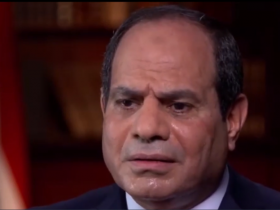Egypt inaugurates 'biggest cathedral in the Middle East' despite militant attacks on Christians
Egypt inaugurated one of the Middle East’s largest cathedrals on Orthodox Christmas Eve, just a day after a deadly bomb blast targeted a church in the capital.
Security was tight as President Abdel-Fattah al-Sisi opened the Nativity of Christ in Egypt’s New Administrative Capital, 45 kilometres east of Cairo, ahead of Coptic midnight mass.
On the same day, the country’s former military chief also opened one of the region’s largest mosques in the same area.
It was a bold move in Egypt where extremist groups including Isis have repeatedly attacked the country’s embattled Coptic community, who make up an estimated 10 per cent of the 100 million-strong population and face mass discrimination.
Just a day before the inauguration a policeman was killed, and two others injured, trying to defuse a device which had been placed on the rooftop of a mosque near a church in the Nasr City district of Cairo.
Read more
Egypt's Sisi denies his country holds any political prisoners
"This is an important moment in our history," President Sisi said at the event which was attended by several foreign dignitaries including Palestinian President Mahmoud Abbas and Arab League Chief Ahmed Aboul Gheit.
“We are one and we will remain one," he added, referring to Egyptian Christians and Muslims.
Coptic Pope Tawadros II, who later led the mass, said: “On this day we see you have fulfilled this promise and here we are witnessing a great opening on this grand occasion.”
US President Donald Trump was quick to applaud the opening.
"Excited to see our friends in Egypt opening the biggest Cathedral in the Middle East. President Al-Sisi is moving his country to a more inclusive future," he tweeted on Sunday.
The security forces were taking no chances at the event which was held in a nearby hotel. Worshippers had to pass through three sets of metal detectors, while armoured vehicles and dozens of ambulances were stationed nearby.
A documentary screened at the opening said that the cathedral has the capacity to hold 8,000 people, making it the largest in the Middle East.
The nearby Al-Fattah al-Aleem Mosque can hold nearly double that number.
Both are located in the new administrative capital, a major development the Egyptian government hopes will supersede crowded Cairo in the coming years.

But many fear the cathedral will only become the target of future attacks in the country that since the 2013 military overthrow of Muslim Brotherhood President Mohammed Morsi has been rocked by shootings and suicide bombings claimed by groups like Isis.
Mr Sisi stormed to power in 2014 promising to protect the Christian community, who make up one of his most loyal support bases.
But religious rights activists say that Christians in Egypt do not enjoy the same rights as their Muslim counterparts and are not properly protected by the security forces.
More than 100 Copts have been killed in jihadist attacks since December 2016 alone.
In November Isis claimed to be behind the deadly shooting of a bus of Christian pilgrims in Minya, in which six Copts and one Anglican were killed.
Militants killed a further 40 people in twin church bombings in April 2017, and an Isis gunman in December of that year gunned down nine people in an attack on a church in a south Cairo suburb.

Many fear Mr Sisi’s fierce crackdown on Mr Morsi’s Muslim Brotherhood, whose leaders have been rounded, killed or forced to flee, has only radicalised islamist youth which has fed recruitment drives by extremist groups.
Several major military operations in the restive Sinai Peninsula, where most of the jihadi groups are anchored, has also failed to curb the killings.
Hundreds of tourists, police officers and soldiers have also died in the attacks.
In late December, a roadside bomb near the famed Giza pyramids killed three Vietnamese visitors and their Egyptian guide.
In 2015 militants claimed to have detonated a bomb on a Russian passenger jet after it left the South Sinai resort town of Sharm el-Sheikh, killing all 224 people on board.
No one claimed responsibility for Saturday’s bomb, which was placed inside a bag on top of al-Haq Mosque in Nasr City, Cairo.

